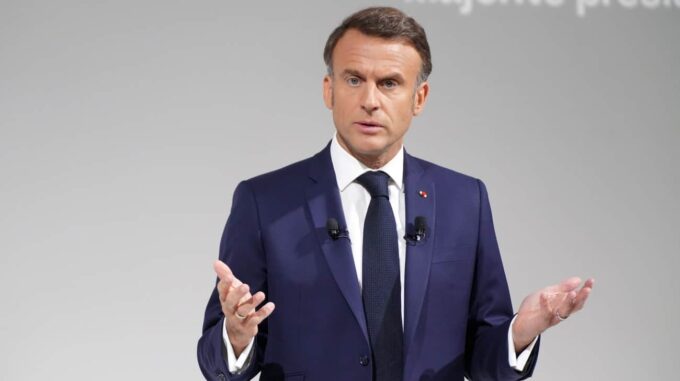French President Emmanuel Macron is considering the possibility of dissolving the parliament and holding early elections as soon as this fall, which has become one of the main political issues in intense discussions within his circle, according to Bloomberg, citing trusted sources

This information, also confirmed by "European Truth," indicates that no decision has yet been made, but several scenarios for how the situation might develop are already on the table. According to interlocutors, Macron has been consulting with advisers and close allies for several weeks about potential steps that could allow him to strengthen his position ahead of upcoming elections and possibly shift the country's political course. Interestingly, the majority of parliamentary elections in France are currently scheduled for 2029, with the process following the usual timetable. Therefore, considering a scenario of an early dissolution of parliament has purely political implications and potential consequences for future stability. One of the options discussed at the highest level is to wait until next year to hold simultaneous elections for the National Assembly and municipal authorities in 2026, but experts and political analysts note that such a plan could be risky and is unlikely to be supported. Ultimately, Macron, according to sources, was advised not to take such risks and to maintain political stability, as holding snap elections in the short term could weaken his position. At the same time, the president himself assured political leaders in December that he would do everything possible to avoid early elections before the end of his term, which is scheduled for 2027. The presidential office representatives declined to officially comment on the idea of dissolution, but a source close to Macron confirmed that the president’s intentions remain unchanged. Public opinion polls published in March show some revitalization of Macron’s support: his approval rating has increased to 31%, which is a significant indicator—up seven points from the previous month and almost matching the level recorded before last year’s parliamentary elections. Analysts emphasize that this rise was achieved through Macron’s active diplomatic efforts on the international stage, including his Europe tour, aimed at countering Donald Trump’s administration policies and seeking new alliances in the current geopolitical situation. Additionally, Macron managed to create an additional platform for consolidating European allies who support Ukraine and aim to strengthen European sovereignty. This has contributed to an increase in his support among elites and the public. However, some circles of international partners and political experts fear that dissolving the parliament and possible early elections could deepen political instability in France, potentially leading to a redistribution of power. Notably, last summer, his political coalition suffered significant losses, with the far-right "National Rally" achieving its best historical result. The "National Rally" remains so popular that its leader, Marine Le Pen, continues to be one of the main contenders for victory in the upcoming presidential elections. However, due to legal issues related to her financial violations, Le Pen has received a five-year ban from participating in elections, which casts doubt on her eligibility as a candidate. Recent polls show interest in her potential successors, particularly Jordan Bardella, who is currently leading in the ratings of potential candidates for the 2027 presidential race. Another important aspect is the ongoing legal case against Le Pen. The Paris Court of Appeal is expected to make a decision in the coming months regarding the possibility of appealing her conviction and restoring her political rights. This gives hope to her supporters that she can return to mainstream politics and participate in the next presidential elections, which, according to analysts, could significantly change France’s political landscape in the coming years. Thus, the situation regarding France’s future political course remains tense and uncertain. Macron and his team are carefully weighing all possible scenarios, striving to find an optimal balance between stability and the ability to respond to internal and external challenges. Domestic processes, including preparations for potential early elections and the fight for political support, promise to bring many surprises to the French political arena in the coming months.

